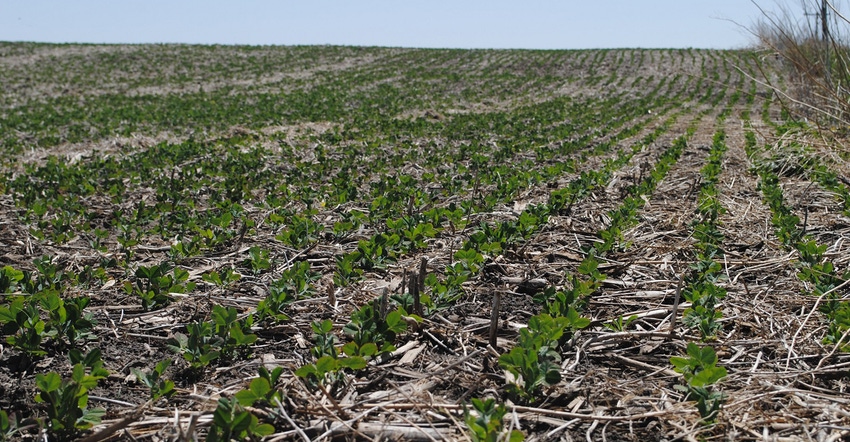
Rol Rushman and his son, Tyler, of Dalton, Neb., have been raising certified field pea seed since 2011. About three years ago, Rushman and several other field pea producers participated in meetings that gauged the interest in developing a state checkoff and commission dedicated to research and development in the growing markets for pulse crops.
A dream of pulse crop growers in the state came to fruition in July when Nebraska’s Unicameral voted 44-0 in favor of LB 803, Venango state Sen. Dan Hughes' “Dry Pea and Lentil Resources Act,” establishing a five-member Nebraska Dry Pea and Lentil Commission.
The commission will consist of one member from each of Nebraska’s three production districts, as well as two at-large members, all with at least five years of experience in growing these crops. The law also authorizes the collection of a 1% excise tax on the net market value of dry peas and lentils sold through commercial market channels within the state, beginning on July 1, 2021.
Faculty and the administration at the University of Nebraska have worked with growers on the passage of this legislation. Now that it has passed, UNL also is interested in partnering with growers to see how they can help grow the industry.
“At one time, the price on peas was around $8.50 per bushel,” Rushman says. “There definitely was a swing in interest, with demand coming from India and China.”
A few more acres were planted to field peas because of the high prices, but lately, demand has been lower, and market prices have dipped. “There are still good markets that have been active, buying peas in the offseason,” Rushman says.
Revenue coverage
The establishment of the commission, with members appointed by Nebraska Gov. Pete Ricketts, will allow Nebraska to become a member of the National Pulse Crops Coalition, administered by the USA Dry Pea and Lentil Council/American Pulse Association.
Neighboring South Dakota, North Dakota and Montana all are members. The coalition helps provide equity in the industry, revenue-based crop insurance coverage and a seat on the national board. The Nebraska checkoff was a necessary component to the membership.
“This enables Nebraska growers to obtain revenue protection coverage through crop insurance,” Rushman says. “In the years with low prices or low yields, or both, this is a big deal.”
The new commission may create general state policies and programs related to the discovery, promotion and development of markets and industries for the use of dry peas, lentils, chickpeas or garbanzo beans, faba beans or lupins grown in the state. It also may adopt an education and publicity program, make grants and enter research contracts.
According to the law, the 1% checkoff will be levied and imposed on the grower at the time of sale or delivery. The first purchaser will collect the tax and remit it to the commission. The commission can adjust the levy after July 1, 2023, but it cannot be less than 1% or more than 2%.
“You have to treat peas differently than other crops,” Rushman says. “There is a learning curve to growing them, but once you get set up, it works well.”
He notes that like any legume, peas add nitrogen back to the soil and have other agronomic benefits, such as building organic matter.
“The real benefit,” Rushman says, “is that they are a cool-season legume, while all the others are warm-season.”
Nebraska Extension and funding from a North Central Sustainable Agriculture Research and Education program helped producers learn more about pulse crop production. In 2018, the combined acreage of field peas, lentils and chickpeas in the state increased to about 80,000 acres.
In addition to Rushman, Steve Tucker of Venango also worked for passage of the law.
UNL CropWatch and nebraskalegislature.gov contributed to this article.
About the Author(s)
You May Also Like






